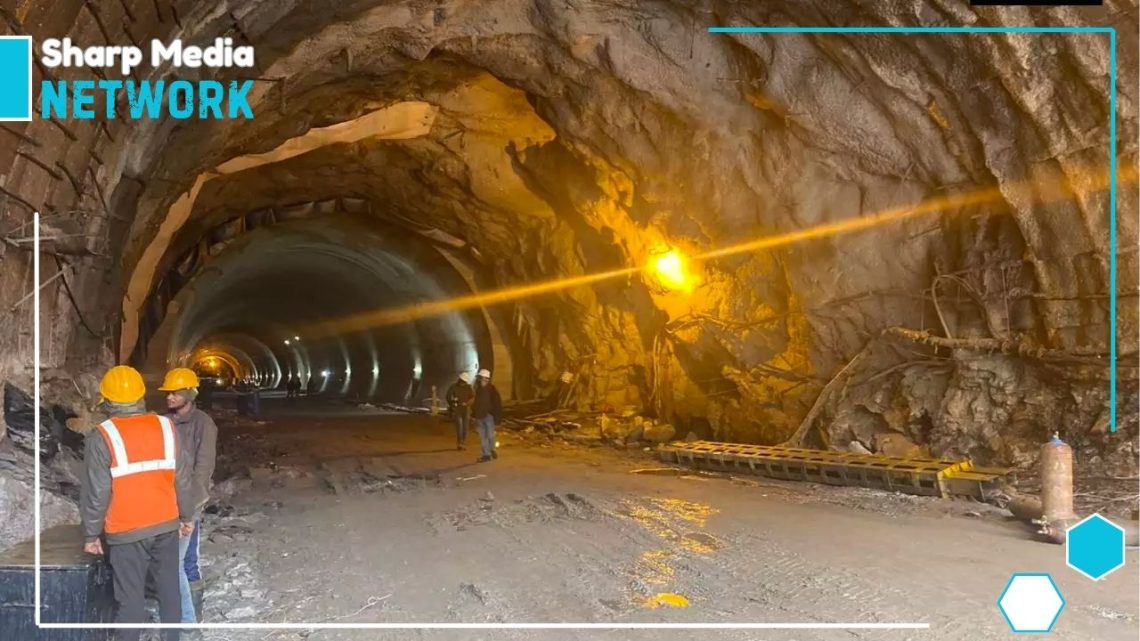
Modi to Inaugurate Z-Morh Tunnel Amid Controversy in IIOJK
January 9, 2025Z-Morh Tunnel inauguration fuels debate over militarization and rights violations in IIOJK.
Indian Prime Minister Narendra Modi is set to inaugurate the Z-Morh Tunnel in Indian Illegally Occupied Jammu and Kashmir (IIOJK) on January 13, a project shrouded in controversy and accusations of rights violations. The tunnel, a 6.5-kilometer-long, two-lane road through the Ganderbal district, aims to make the picturesque Sonamarg an all-weather tourist destination. However, critics allege that its construction has been fraught with corruption, political manipulations, and questionable funding, including alleged links to the BJP’s electoral funds.
The Z-Morh Tunnel, initiated in 2018, is part of a series of infrastructure projects in IIOJK that have sparked widespread criticism. While the government touts these projects as efforts to boost connectivity and tourism, activists and human rights organizations claim they are being implemented without consulting local communities. This approach has led to allegations of coercion, marginalization, and a blatant disregard for the rights of the region’s indigenous population.
“The lack of transparency and accountability in these projects reflects a troubling pattern of governance in the region,” said a representative of a human rights watchdog. “Such actions not only violate democratic principles but also contravene UN mandates aimed at safeguarding the rights and livelihoods of indigenous people.”
One of the most contentious aspects of the infrastructure push in IIOJK is its perceived military-centric nature. Observers note that these projects appear to be designed to facilitate the movement of Indian security forces rather than serving the developmental needs of the local population. The Z-Morh Tunnel, critics argue, exemplifies this trend, raising fears of further militarization in an already volatile region.
Enhanced mobility for security forces could lead to more aggressive crackdowns on dissent, further straining relations between the state and local communities. “These projects reinforce the perception that the region is being treated as a strategic asset rather than a home for its residents,” commented a political analyst.
Human rights organizations have also flagged these projects as violations of international laws and human rights charters. The unilateral implementation of such initiatives, without community participation, undermines the democratic process and fuels mistrust. The ongoing development projects in IIOJK, many argue, reflect an occupation-style governance that prioritizes military and political interests over the well-being of the region’s people.
“This approach exacerbates existing tensions and adds to the narrative of disenfranchisement among the Kashmiri population,” said a regional rights activist.
As the Z-Morh Tunnel nears its official inauguration, questions remain about the true intent and impact of such projects in IIOJK. While they promise economic and tourism benefits on the surface, their underlying military focus and exclusion of local voices threaten to destabilize the region further.
The controversy surrounding the Z-Morh Tunnel is emblematic of the broader challenges facing IIOJK under Indian administration. It serves as a stark reminder of the urgent need for transparency, accountability, and inclusive governance to ensure the region’s development aligns with the aspirations and rights of its people.

